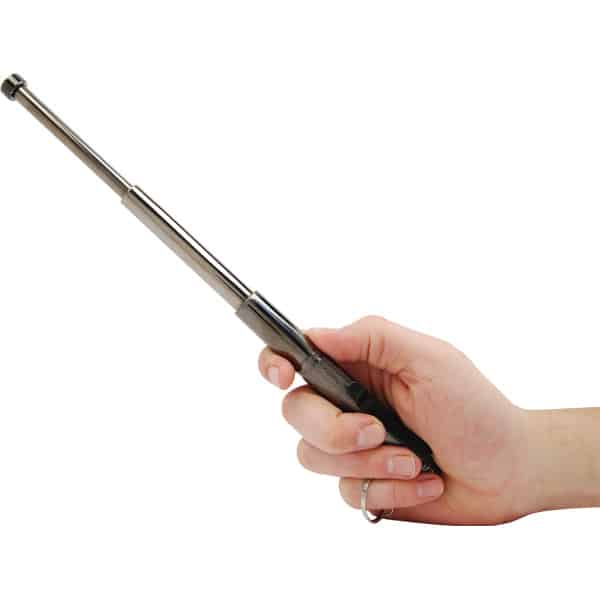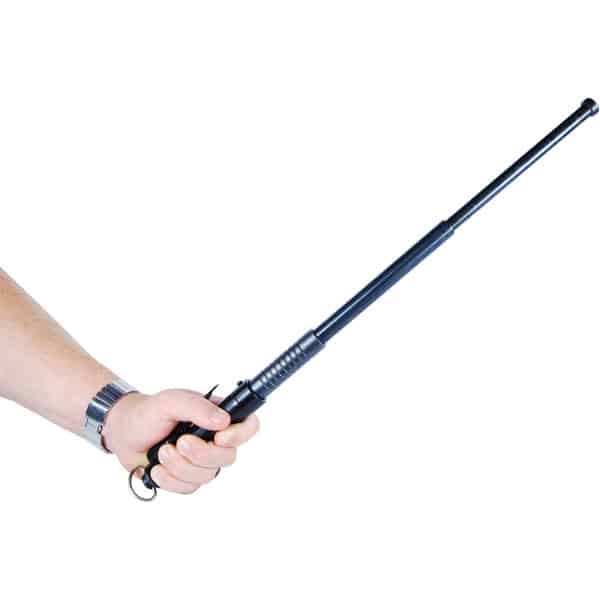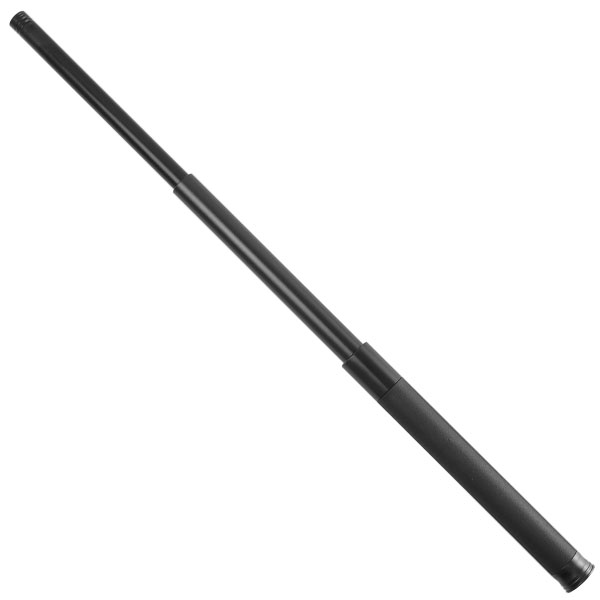

In the urban safety chess game, telescopic batons have emerged as powerful queens, offering unexpected moves for personal defense. These batons not only act as a bridge between vulnerability and empowerment but also require a mastery of technique to unlock their full potential.
However, how do these tools fit into the broader picture of community safety and legal considerations? Let’s delve deeper into this, considering the balance between personal security and responsible usage.
As crime rates rise, more people turn to telescopic batons and other personal defense tools for protection. You’re probably looking for ways to feel safer in your daily life, and the increasing popularity of these batons shows how effective they can be. Their easy carrying and deployment make them an appealing option for personal safety.

You’re not the only one needing to protect yourself from potential threats. With crime increasing, it’s more important than ever to take steps to enhance your personal security.
Telescopic batons, known for their portability and non-lethal defense capabilities, provide a way to defend yourself without causing permanent harm.
However, it’s essential to have more than just a physical tool. Knowing how to use these batons effectively and understanding the legal regulations are crucial for ensuring your safety and security. You’re proactively protecting yourself in an increasingly uncertain world by arming yourself with the right tools and training.
To fully appreciate the benefits of telescopic batons, it’s important to understand what they are and how they work. These compact, powerful tools are a top self-defense choice, offering civilians and law enforcement a reliable means to protect themselves. Here’s what you need to know:
Understanding these key features can help you see why telescopic batons have become a favored tool for those looking to enhance their personal security arsenal.
Proper training can greatly improve your ability to defend yourself by teaching you how to handle a telescopic baton effectively. It’s not just about owning a tool; it’s about knowing how to use it. Getting the right training can make a big difference when confronted with a threat, lowering the chances of misuse and boosting your self-defense skills.
Here are a few key points to keep in mind:

Extendable batons enhance your ability and confidence. These tools extend your reach, serving as a deterrent against potential threats. The presence of batons in a neighborhood scares off criminals, reducing violent encounters.
With a baton and the know-how, you can contribute to a quicker, more effective response to crime. This readiness protects not only yourself but also your loved ones.
Fear fades as you embrace collective strength. Telescopic batons symbolize resilience and preparedness, keeping you safer.
Before you carry or use a telescopic baton for self-defense, it’s essential to understand the local laws that govern its use. Laws regarding self-defense tools, such as batons, can vary significantly from one place to another. What might be allowed in one area could get you into legal trouble in another. Therefore, it’s crucial to ensure you know the legal implications surrounding using a telescopic baton in your region.

Using force in self-defense must align with local laws to avoid legal issues. It’s not just about having a tool for protection; it’s about knowing when and how its use can be legally defended. Ignorance of these laws won’t excuse you in the eyes of the law.
To navigate these complex legal waters, seeking guidance from legal professionals is a smart idea. They can help you understand the boundaries and regulations specific to your area. Being well-informed about these legal considerations ensures that you can use your telescopic baton responsibly and within the confines of the law. This empowers you to protect yourself effectively while staying on the right side of legal boundaries.
You can have a collapsible baton, but it can vary by location. Always check local laws and get proper training before carrying one.
They’re generally considered non-lethal weapons, but they can do quite hurt when they strike someone. It’s all about how they’re handled.
Pepper Spray Wholesale provides non-lethal self defense products and hidden cameras for you, your loved ones and your home. If you have any questions about the products, do not hesitate to Contact Us. Stay Safe!
Pepper Spray Wholesale
1867 Caravan Trail
Ste 105
Jacksonville, FL 32216
Call us toll free: (800) 859-5566